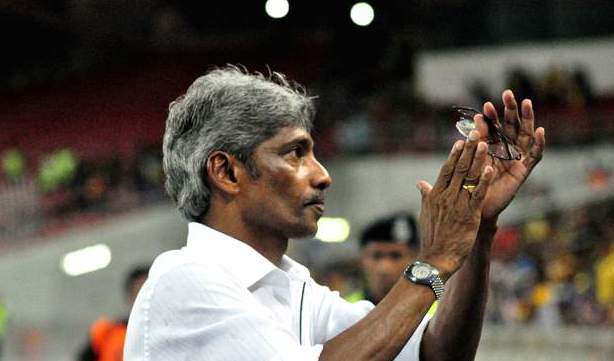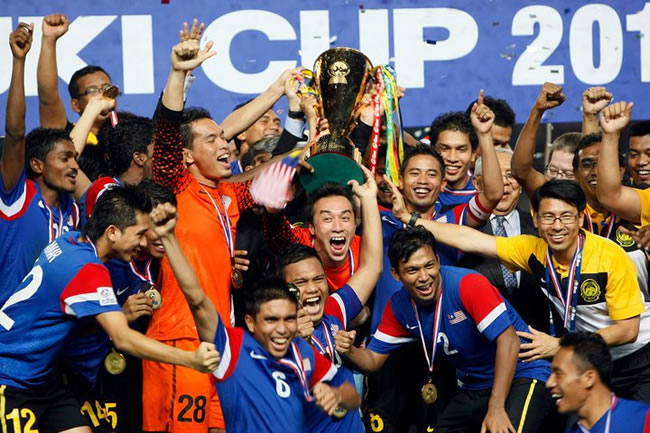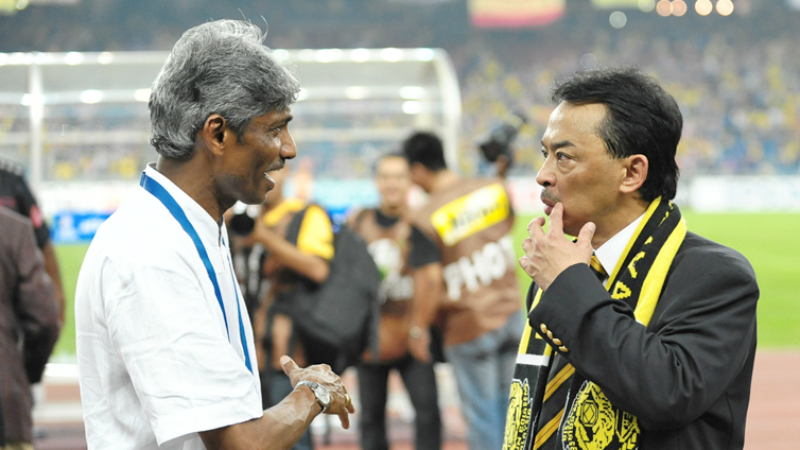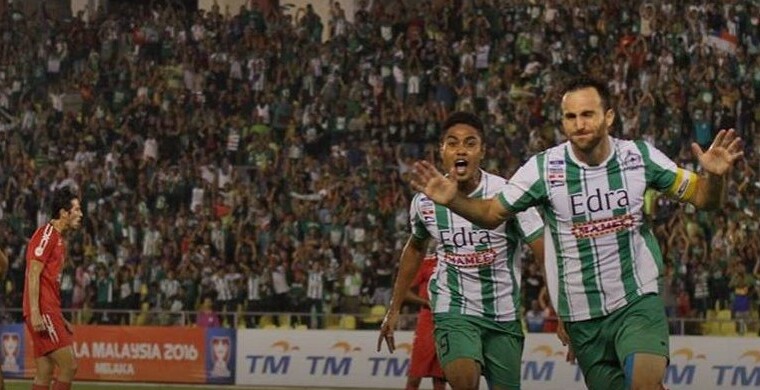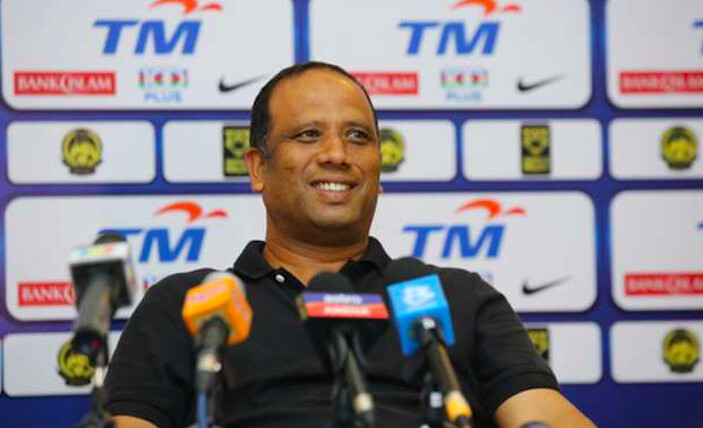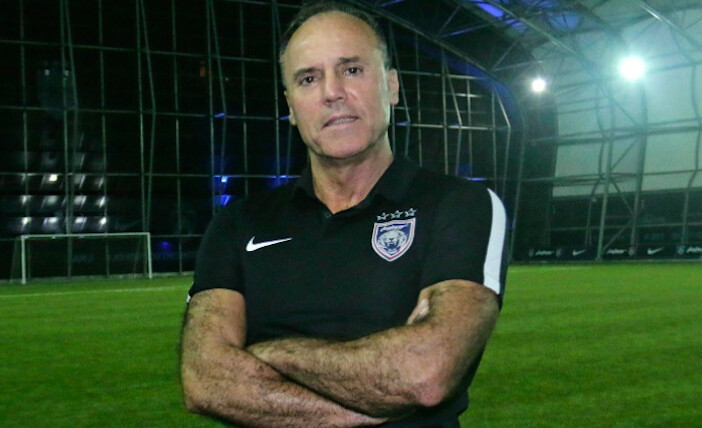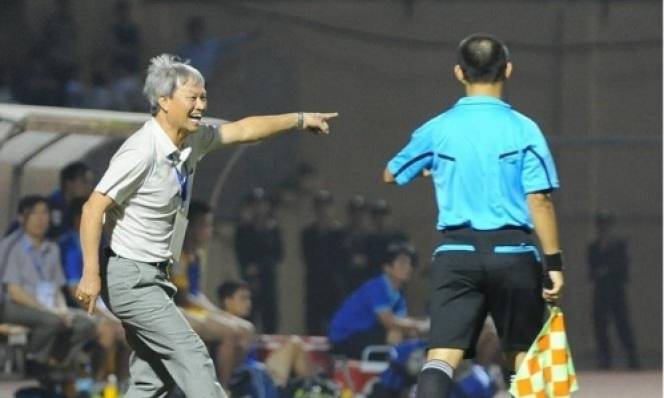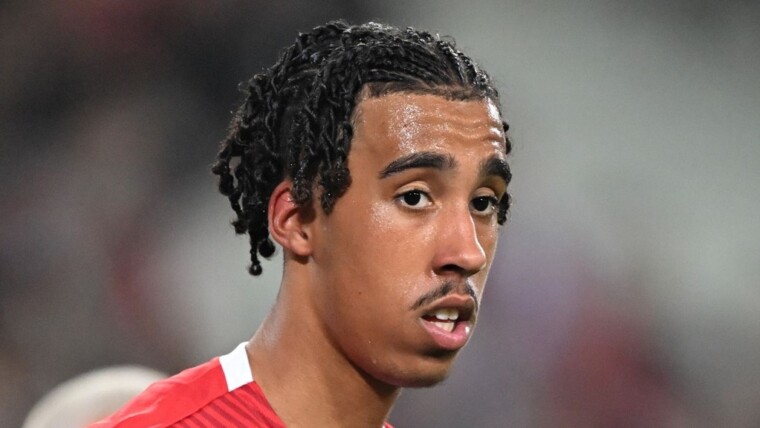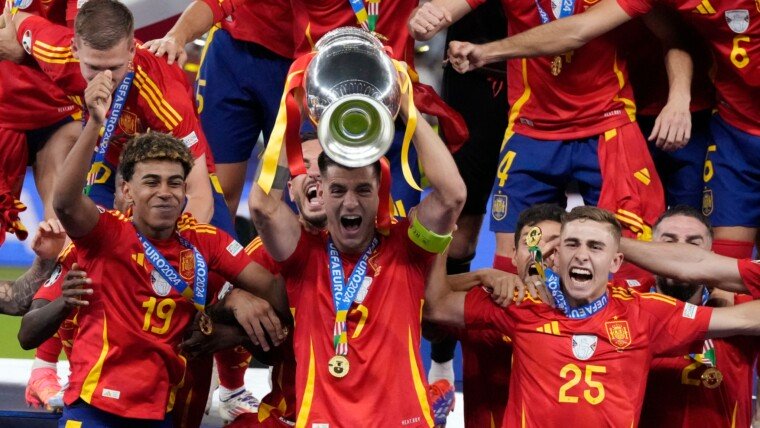When Malaysia triumphed in the SEA Games back in 2009, it was relatively obvious that Datuk K. Rajagopal was the architect behind the success. And when the Malaysian national team went on to win the AFF Suzuki Cup in 2010, King Raja was immediately inducted into the Malaysian hall of fame as far as football was concerned.
The Suzuki Cup triumph is largely recognized as the turning point for the local football scene, after which the attention for local football really went on an upward spiral. Fans are back in the stadium, tickets are being actively sold, and the quality of local football seems to be improving every year as well. But for Rajagobal himself, it was never a fairy tale until the end.
Malaysia failed to retain their Suzuki Cup title back in 2012, and went on the struggle in the Asian Cup qualifers, a stage that Rajagopal had vowed to impress in. As a result, his contract was not extended and he was allowed to leave back in December 2013. Though his departure was embroiled with controversial opinions from fans and the FAM alike, there is no denying the fact that King Raja played an essential role in boosting the local football scene. And with the AFF Suzuki Cup set to kick off today, we spoke to the King himself, on matters pertaining to his tenure as the national team coach as well as the local football scene.
FO: When you first became the national team boss, you opened up the door for plenty of young talents to break into the national team. The likes of Mahali, Safee Sali and Safiq Rahim were relatively young back then. What was your philosophy like?
KR: My philosophy was to change the system according to the requirement of modern football which needed speed, energy, and a high tempo game play accompanied with a long term plan for the future of the national team. This was to ensure the continuity for the future of Malaysian football.
FO: Four years ago, Malaysia suffered a massive opening game defeat to Indonesia, but under your guidance, the Malayan Tigers bounced back in style to lift the trophy one month later. How did you inspire that revival?
KR: I told them that we lost the match not because we played poorly but because of individual mistakes. There were more positives compared to negatives despite conceding 5 goals to Indonesia and I capitalised on the strengths of it to motivate the players. I told the players that God willing, we will meet Indonesia in the final and then prove that Malaysia is a better team and go on to create a legacy in Malaysian football.
FO: The 2nd leg of the finals in Indonesia, what was the atmosphere like in Indonesia prior to the game and upon confirmation of victory?
KR: It was a terrifying and intimidating experience both for the players and the coaching staff. For example we could not train 2 days before the final leg in Indonesia, because of the Indonesian fans outside the hotel and we also discovered that 15,000 fans would be at the training pitch to watch us train. On match day we had to get to the Gelora Bungkarno stadium using a military vehicle. We only returned to the hotel 3 hours after the match. The night did not just end there, even at the hotel, Indonesian fans were waiting for the arrival of the Malaysian team.
FO: Names like Safee Sali and Norshahrul were absolute beasts in that same year as well, but their form has been going on a downward spiral in recent times. What do you think is affecting them?
KR: I think this is relatively simple. It’s basically the lack of playing time with their respective club teams. To me, its down to just that.
FO: Throughout your tenure as the national team head coach, which particular player would you refer to as the ultimate professional?
KR: As I thought through this question, it was difficult to mention a name because all players gave their full commitment and respect at all times.
FO: There were some controversial opinion amongst fans during your tenure, pertaining to the absence of Piya from most of your squad selections. Your thoughts on this issue?
KR: Piya did not fit into my game plan and fast game-play tactics. I do not have anything personal against him but my philosophy and tactics may have been perceived to be against him.
FO: Rumours suggests that you were on the verge of being sacked after the Barcelona friendly game, but a decent performance couple with a reasonable score line halted that decision. Is there any truth in this?
KR: Rumours started spreading way before the Barcelona game; particularly during the 2012 AFF Suzuki Cup tournament itself. When the team lost to Singapore 3-0, I was lambasted and the critics/conspirators did not expect us to go up to the semi-finals of the tournament. It surfaced again during the second match of the Asian Cup qualifiers when we met Yemen, though unfortunately for the critics/conspirators, we won that match 2-1. This also happened with the Barcelona game where we did considerably well with people thinking it would end in a thrashing. All this small successes prolonged my “sacking” plan till the end of my contract in December 2013.
FO: The last few months of your tenure was filled with pressure, at a certain point it looked like a smear campaign against you, particularly after Malaysia’s struggles in the 2012 Suzuki Cup. What was it like dealing with that pressure?
KR: It was a normal day at the office for any professional coach. For me personally, I persevered because I did my job with integrity with my main focus being the national team’s preparation even with so many distractions.
FO: Dollah Salleh has been given almost six months to prepare for the Suzuki Cup. Speculation has it that you were only offered 12 days to form a squad for the 2010 Suzuki Cup. Was it true? And how was it like dealing with it?
KR: The Under 23 team came back from the Asian Games in China and I only had 12 more days to the Suzuki Cup 2010 in Indonesia. The decision to take 95% of the Under 23 team with addition of Safee Sali, Amri Yahya and Razman due to last minute injuries. It was a fairy tale and we won the Suzuki Cup despite Malaysia having one of the youngest team in the competition.
FO: If you could rewind time and be in the hot seat again, would you have done anything differently?
KR: I would not have changed any of my decisions or philosophy as a whole. No major changes, definitely.
FO: You are currently going around the region, delivering motivational talks. Is this something you see yourself doing for a reasonable amount of time, or are you looking to get back into management any time soon?
KR: Yes it is interesting and exciting to share my experiences with these people. I personally find it fulfilling to inspire and motivate the younger generation to achieve their dreams and goals. But at the same time, I am also waiting for the right moment, opportunity and offer to come back into management.
Those interested in acquiring the services of Datuk K. Rajagobal as a motivational speaker, may drop an email to datuk.k.rajagobal@gmail.com
Other posts by Keeshaanan Sundaresan

